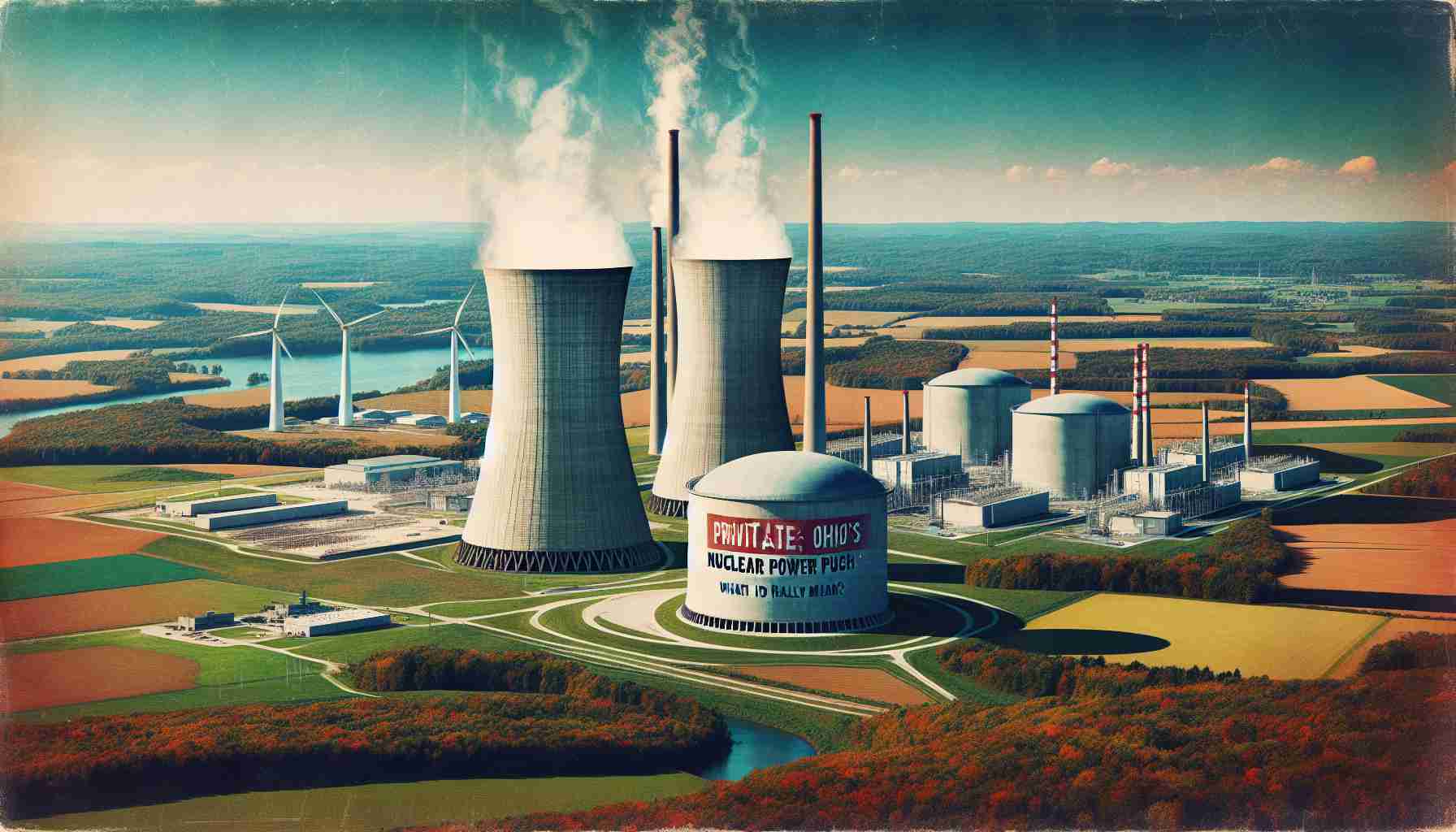In a stunning development, the Czech Republic’s antitrust authority has put a temporary stop to a groundbreaking contract worth €16 billion, intended for the construction of two nuclear reactors. This massive project was awarded to a consortium led by a South Korean company earlier in the year but has now been stalled following objections from industry giants such as Westinghouse and EDF in France.
A spokesperson from the antitrust agency, Martin Švanda, revealed that the regulatory body issued a precautionary order that prevents any further progress on the contract until a thorough investigation into the objections can be completed. These nuclear power companies allege that the construction project infringes on their patented reactor technologies.
Despite this setback, the Czech state utility, ČEZ Group, insists that all necessary procurement procedures were properly followed during the selection of the South Korean consortium. The ČEZ spokesperson noted that procedural measures such as this have been common practice, with over 120 similar actions taken in the past year alone. There is still an air of confidence that the contract will be finalized by the deadline of March 31, thanks to ongoing negotiations.
Furthermore, the South Korean government has downplayed the implications of this precautionary halt, describing it as a standard practice. The project is critical not just for South Korea’s ambitions in the nuclear market but also for strengthening energy ties between nations, as reflected in recent collaborative agreements on clean energy projects.
The Nuclear Conundrum: How Legal Battles Shape Energy Futures
The recent halt to a €16 billion nuclear contract in the Czech Republic has sparked not only controversy but also broader implications for energy policies and international relations. As the tension unfolds, it raises important questions about the future of nuclear energy, geostrategic interests, and public perception of nuclear safety.
One notable aspect of this situation is the role of international collaborations and tensions surrounding nuclear technology. The objections raised by Westinghouse and EDF highlight a competitive landscape where patented technologies become pawns in a larger game of nuclear diplomacy. This incident illustrates a growing trend of nations preferring domestic or allied suppliers for critical energy infrastructure, which could lead to an increase in geopolitical strife, especially among nuclear-capable nations. The dynamics at play could make countries reconsider their partnerships, affecting energy security and technological transfer on a global scale.
How could this pause in the project affect the lives of ordinary citizens in the Czech Republic? Nuclear energy often represents a significant portion of a country’s energy mix. Any delay in this project means potential disruptions in energy supply or higher electricity costs, which could directly impact households and businesses. The local economy could suffer if energy prices rise, creating a ripple effect on job stability and economic growth.
The debate over nuclear energy is not merely technical; it taps into the public’s feelings about safety and environmental impacts. In light of past nuclear disasters, many citizens may harbor fears about new plants, which prompts a critical question: Is public trust in nuclear energy eroding? If the perception of risk increases, it might lead to more vocal opposition to nuclear projects in the future, hindering progress in what many consider a vital step towards reducing carbon emissions and fighting climate change.
Controversially, the involvement of the South Korean government highlights a trend where nations are striving for dominance in the nuclear market. South Korea’s push for energy exportation could face backlash if national or public sentiments in partner countries lean towards anti-nuclear advocacy. Is it possible that such partnerships can succumb to domestic pressures from environmental groups, swaying political will away from nuclear projects?
Interestingly, this situation reflects a broader context of nuclear competition and technological warfare, raising questions about the disparities in the technological capabilities of countries. As nations rush to secure their energy futures, it becomes evident that the nuclear sector could serve as an arena for innovation, collaboration, and potential conflict. This adds another layer of complexity for policymakers striving to balance energy needs with international commitments and local safety concerns.
In conclusion, the Czech nuclear project’s current standstill illuminates multifaceted issues affecting energy policy, international relations, public safety perceptions, and economic stability. As the situation develops, it is vital for stakeholders to remain alert to the numerous factors influencing the future of nuclear energy, not only in the Czech Republic but across the globe.
For more insights on energy issues, visit IAEA.
The source of the article is from the blog radardovalemg.com



